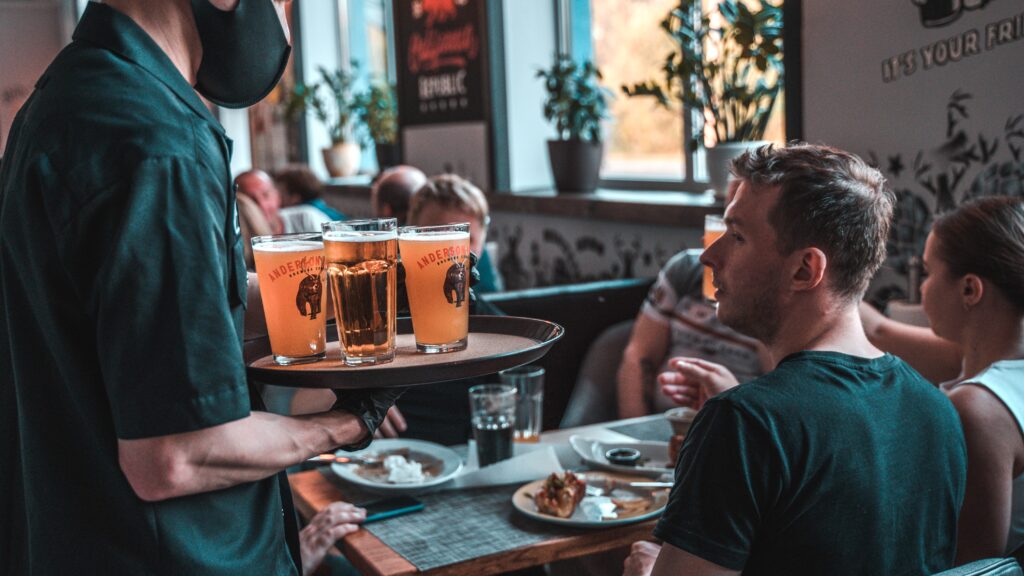LANSING — Due to rising COVID-19 cases in the state, the Michigan Department of Health and Human Resources (MDHHS) has revised and extended its epidemic order.
Now, the agency has reduced the maximum size of indoor gatherings such as weddings, parties and banquets, which occur in nonresidential settings without fixed seating, from 500 persons to 50 persons. The agency says this change is necessary due to global evidence that the virus’ explosive growth is powered by events where large-scale outbreaks have occurred, also called “superspreader events”, and that indoor settings are as much as 20 times likelier to drive outbreaks than outdoor settings.
Currently Michigan counts 34 outbreaks related to social events such as trips by families/friends, bridal showers and weddings (three-10 cases); funerals (nine-22 cases) and outings at social clubs and bowling parties (six-19 cases). An additional 19 outbreaks of up to 52 cases are linked to church services, which are exempt from enforcement under the order.
For bars, restaurants and social events outside private homes, indoor party sizes at a single table are now restricted to six people. Because individuals remove their masks while eating and drinking in indoor settings, seated tables with people from different households create high risks of spread.
Like many other businesses in Michigan, bars and restaurants will also be required to take names and contact information to support effective contact tracing if necessary. Research published by the Centers for Disease Control and Prevention (CDC) has shown that visiting restaurants is a risk factor for COVID-19 positivity, and currently there are 12 outbreaks in Michigan associated with bars or restaurants with currently active clusters up to 12 cases.
“The orders that MDHHS has issued are centered on keeping the public safe and following best practices to reduce the spread of this deadly virus,” said Dr. Joneigh Khaldun, chief medical executive and chief deputy for health at the MDHHS. “The alarming surge we are now seeing is exactly why we were so worried about the fall season. We must remain vigilant, so we prevent long-term health consequences and unnecessary deaths, and protect our hospital capacity and the health of our frontline health workers.”

Photo: Alexander Kolyada
Like many other businesses in Michigan, bars and restaurants will also be required to take names and contact information to support effective contact tracing if necessary.
New fines
Violations are punishable by a civil fine up to $1,000 and may also be treated as a misdemeanor punishable by imprisonment for not more than six months or a fine of not more than $200, or both. In addition, failure to comply with orders may violate a business or professional’s licensure requirements or present a workplace safety violation.
A “complaint page” has been set up for residents who seek to report COVID-19 violations to find the appropriate department. For general failures to wear a mask or physical distance, residents are asked to call their local law enforcement’s non-emergency line.
The orders create a mechanism for law enforcement statewide to enforce the orders if education is unsuccessful. “The Michigan State Police continues to encourage Michiganders to follow all public health guidance and orders set in place to slow the spread of COVID-19,” stated Col. Joe Gasper, director of the Michigan State Police. “It’s important that we each take personal responsibility for our actions and that we also encourage those around us to do the same.”
New stronger indoor gathering recommendations
The MDHHS has also published the following strong recommendations for indoor social gatherings during the upcoming holidays:
- Get together outside whenever possible. You have up to 20 times higher risk of getting sick inside.
- If you do get together inside, include no more than two households and 10 people.
- Limit time inside together—greater duration is greater risk.
- Wear a mask – take it off when you eat or drink, then put it back on.
- Keep six feet apart as much as you can.
- When possible, keep voices down; high volume can increase COVID transmission by 30 times
- Wash hands regularly and try to not to share utensils.
Michigan currently has 172 cases per million people and positivity of tests has increased from about 2 percent to 5.5 percent and both indicators have been increasing for more than four weeks. Hospitalizations for COVID-19 have doubled over the last three weeks, while the state death rate has increased for five consecutive weeks






Leave a Reply